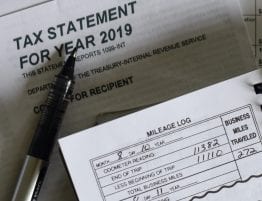
Tax season can be a stressful time for anyone. With all of the paperwork, deadlines, and changing regulations, it can be challenging to keep up with everything. It can be even more difficult if you are facing a complicated legal situation, such as an Internal Revenue Service (IRS) audit or a potential tax dispute. This is when it may be time to consider hiring a tax attorney.
A tax attorney is a lawyer who specializes in tax law and can provide legal advice and representation in tax matters. They are knowledgeable in all aspects of the law and can provide the best advice on handling a tax situation. Tax attorneys can help individuals and businesses file taxes, prepare tax returns, negotiate with the IRS, and represent clients in court.
When to Consider Hiring a Tax Attorney
When considering hiring a tax attorney, reviewing your situation is important. If you are filing your taxes yourself and are not facing any complications, you likely do not need to hire a tax attorney. However, suppose you are facing an audit, a dispute with the IRS, or worse, wage garnishments, bank levies, or a tax lien. A tax attorney can be beneficial in providing legal advice and representation in these matters. A tax attorney can also help negotiate a settlement with an IRS Revenue Officer or help to reduce the amount of tax owed. Additionally, a tax attorney can provide valuable advice on how to structure your finances to minimize your taxes.
Looking for assistance with your personal or business tax situation now? Contact us to speak with one of our reliable and experienced tax attorneys today.
How Much Does a Tax Attorney Cost?
When deciding when to hire a tax attorney, it is important to consider your situation and budget. Good tax attorneys can be pricey, so it is crucial to ensure you can afford the fees associated with hiring one. Additionally, it is important to ensure that you are hiring a reputable tax attorney who is knowledgeable in the law and can provide the best advice and representation. Standard tax attorneys charge by the hour, ranging anywhere between $200 and $400 per hour, and many accept payment plans. Others provide a flat rate based on the services needed, so you know what to expect upfront. You might also consider that no matter the price tag, bank levies and wage garnishments cost more, and it is worth the peace of mind to get in good standing with the IRS.
How to Prevent an IRS Wage Garnishment and Bank Levy
One of the most feared words in the English language is “garnishment.” This legal process allows a creditor to take money from your paycheck or bank account to pay off a debt. While it’s a legal process, it is also a massive invasion of privacy and can cause a lot of stress and hardship.
One of the most common forms of garnishment is wage garnishment by the IRS. The IRS has the power to garnish your wages if you owe back taxes and can take a significant portion of your paycheck until the debt is paid off. They look at your filing status and figure out how much you would need to survive at their discretion. The rest goes to your debt. So, if you make $1,000 a week and they say you only need $200 a week, they pocket that $800.
Fortunately, there are ways to prevent the IRS from garnishing your wages. It is worth getting ahead of a wage garnishment with the help of an experienced tax professional. If you are facing an IRS wage garnishment, here are some tips to help you avoid it.
File Your Tax Returns on Time
This one might be obvious, but not everyone knows the ramifications of unfiled tax returns. IRS wage garnishment ensures you file your tax returns on time. If you owe taxes and don’t file your return, the IRS can come after you for the debt and garnish your wages for the debt they estimate you owe. So make sure to file your taxes as soon as possible.
Negotiate a Payment Plan
The best way to avoid an IRS wage garnishment is to negotiate a payment plan with the IRS. The IRS offers many different payment plans, so you should contact them to discuss your options. Depending on your financial situation, you may be able to work out a plan that allows you to pay off your taxes without having to suffer the fallout of wage garnishment.
Make Payments
If you can’t negotiate a payment plan and don’t have the money to pay off your debt in full, the next best thing is to make payments on the debt. Even if you can’t pay off the total amount, making regular payments shows the IRS that you are trying to pay off the debt and could get them to stop the garnishment.
Request an “Offer in Compromise”
If you can’t pay your debt in full, you may be able to negotiate an “offer in compromise” with the IRS. This agreement between you and the IRS allows you to pay a lesser amount than what you owe. To qualify for an offer in compromise, you must demonstrate that you can’t pay the total amount and that paying a lesser amount is in the best interests of both you and the IRS.
Request a Collection Due Process Hearing
If you disagree with the IRS’s decision to garnish your wages, you can request a Collection Due Process (CDP) hearing. At the hearing, you will have the chance to present your case and explain why you think the IRS is wrong. The IRS will then determine if they will continue with the garnishment, modify the garnishment, or cancel it altogether.
Most of these strategies require time and resources you may not have and there are risks to doing it yourself. Hiring a Tax Attorney may be the best option for you. Contact us to speak with one of our reliable and experienced tax attorneys today.
What to do if You’re Facing a Wage Garnishment or Bank Levy
When it comes to dealing with wage garnishments and bank levies, hiring a tax attorney can be a great way to avoid the potentially devastating financial consequences of these actions.
Wage garnishment and bank levies are both severe financial collection tactics used by the IRS to collect unpaid taxes from individuals and businesses. Wage garnishments are when the IRS takes a portion of a taxpayer’s wages directly from their employer, while bank levies are when the IRS takes funds directly from a taxpayer’s bank account.
The circumstances of these legal actions can be stressful, as they can leave taxpayers with insufficient funds to pay their living expenses and even result in their job loss. In some cases, taxpayers have had their wages garnished for months or even years at a time, leading to extreme financial hardship.
Overall, hiring a tax attorney can be the best solution for taxpayers to protect themselves from the harsh repercussions of wage garnishments and bank levies and even stop them from proceeding, saving you thousands of dollars in the process.
At Justice Tax, we have helped thousands of hardworking Americans with their tax needs and tax issues. We specialize in tax preparation and tax relief for 1099 independent contractors, self-employed individuals, and owner-operators. You can learn more about our services or contact us today for a free consultation.








